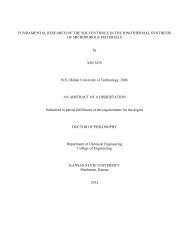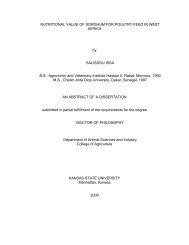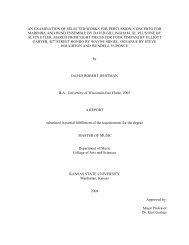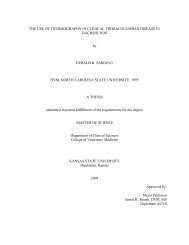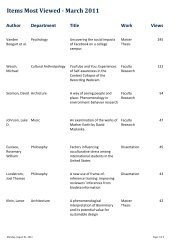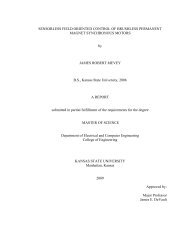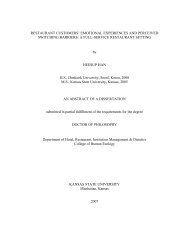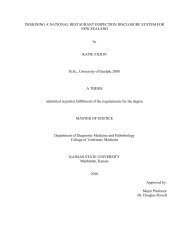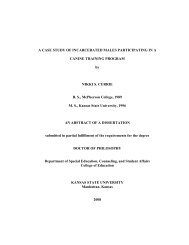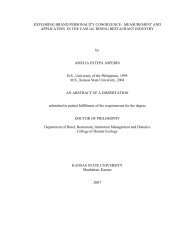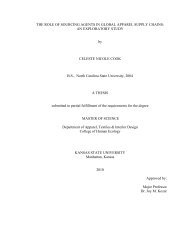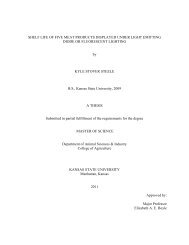SELFISH INTENTIONS - K-REx - Kansas State University
SELFISH INTENTIONS - K-REx - Kansas State University
SELFISH INTENTIONS - K-REx - Kansas State University
Create successful ePaper yourself
Turn your PDF publications into a flip-book with our unique Google optimized e-Paper software.
perhaps so they could control the numbers of divorces and types of pleas.” 32 Common reasons<br />
behind requests for divorce in Virginia include adultery, giving birth to a mulatto child, cruelty,<br />
and abandonment.<br />
With the exception of South Carolina, other southern states also accepted the practice of<br />
legislative divorce. Riley contends that this was not as big of a departure from English Common<br />
Law as one would think. She argues, “This was not the break from English practice that it<br />
appears to be, for beginning in 1670, the English Parliament began to grant infrequent absolute<br />
divorces. Southern leaders replicated this practice by limiting the power to grant divorces to<br />
state legislatures just as English practice limited divorce jurisdiction to Parliament, the national<br />
legislature.” 33 Maryland was the first state to grant a divorce in the post-revolutionary period.<br />
The Maryland state legislature established the precedent of legislative divorces in 1790 when<br />
they granted a divorce to a couple when the wife gave birth to a mulatto child.<br />
Legal scholars questioned whether legislative divorces violated the contract clause of the<br />
Constitution, which impaired legislative involvement in the obligations of contracts. As<br />
VanBurkleo puts it, “Although lawyers disagreed about the clause’s application to public<br />
agreements, few doubted that it proscribed meddling with the rights enshrined in private<br />
contracts, of which marriage seemed to be one type. If divorce acts altered or destroyed property<br />
rights, moreover, they might run afoul of constitutional prohibitions against ‘takings’ and ex post<br />
facto legislation.” 34 As early as the 1810s, scholars debated this issue. In 1819, Supreme Court<br />
Justice Story mentioned this debate in his dissenting opinion in the Dartmouth College v<br />
Woodward case. While this case did not mention divorce, it focused on the contract clause of the<br />
32 Ibid., 56.<br />
33 Ibid., 55.<br />
34 VanBurkleo, 69.<br />
10



